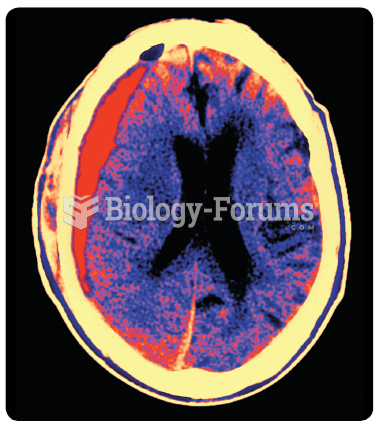|
|
|
In women, pharmacodynamic differences include increased sensitivity to (and increased effectiveness of) beta-blockers, opioids, selective serotonin reuptake inhibitors, and typical antipsychotics.
Adolescents often feel clumsy during puberty because during this time of development, their hands and feet grow faster than their arms and legs do. The body is therefore out of proportion. One out of five adolescents actually experiences growing pains during this period.
The word drug comes from the Dutch word droog (meaning "dry"). For centuries, most drugs came from dried plants, hence the name.
According to the National Institute of Environmental Health Sciences, lung disease is the third leading killer in the United States, responsible for one in seven deaths. It is the leading cause of death among infants under the age of one year.
Fungal nail infections account for up to 30% of all skin infections. They affect 5% of the general population—mostly people over the age of 70.
 The exhaust drives the turbine wheel on the left, which is connected to the impeller wheel on the ...
The exhaust drives the turbine wheel on the left, which is connected to the impeller wheel on the ...
 A CT scan of a subdural hematoma. Notice that the subdural hematoma has displaced the left lateral ...
A CT scan of a subdural hematoma. Notice that the subdural hematoma has displaced the left lateral ...





